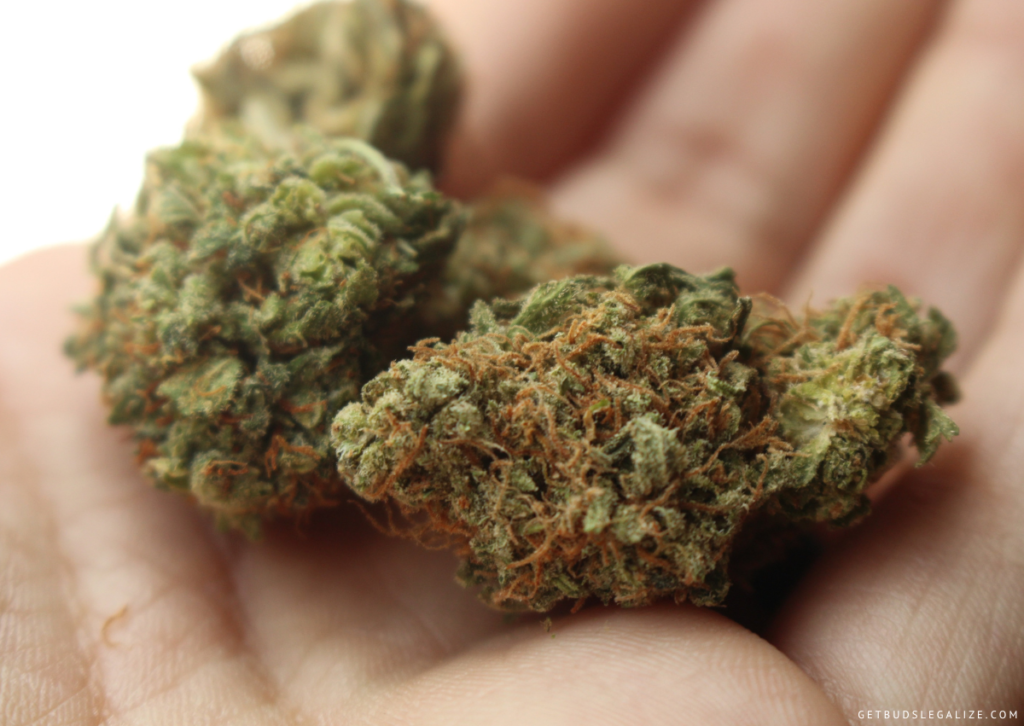How To Get Rid of A Weed Hangover: Remedies and Prevention
Have you ever smoked too much weed and felt tired, dizzy, or foggy the next day? If so, you may have been experiencing a weed hangover, which while not as common or severe as an alcohol hangover, can still affect your mood, memory, and performance. In this blog post, we’ll discuss what a weed hangover is, its causes, and how to avoid and manage it.
What Is A Weed Hangover?
A weed hangover is a term used to describe the lingering effects of cannabis consumption that last beyond the initial high. Unlike alcohol hangovers, caused by dehydration, inflammation, and toxins from the breakdown of ethanol, weed hangovers are not well understood by science. Some possible factors that may contribute to its occurrence include:
- The amount and potency of weed consumed.
- The method of consumption (smoking, vaping, edibles, etc.)
- The individual’s tolerance and metabolism.
- The quality and purity of the weed.
- The presence of other substances (alcohol, caffeine, nicotine, etc.).
What Causes a Weed Hangover?

The exact mechanisms behind it are unclear, but there are a few possible explanations based on the effects of cannabis on the body and brain. Some of these include:
- Dehydration: Cannabis can cause dry mouth and eyes by inhibiting the production of saliva and tears. This can lead to dehydration, which can cause headaches, fatigue, and nausea.
- Sleep disruption: Cannabis can affect the quality and quantity of sleep by altering the sleep cycle and reducing REM sleep. This is important because REM sleep is necessary for memory consolidation, learning, and emotional regulation. Lack of REM sleep can result in grogginess, moodiness, and cognitive impairment.
- THC accumulation: THC is the main psychoactive compound in cannabis that causes the high. THC is fat-soluble, which means it can accumulate in the fatty tissues of the body and brain. This can prolong the effects of THC and cause residual impairment the next day.
- Immune system suppression: Cannabis can suppress the immune system by affecting the production and function of white blood cells. This can make the body more vulnerable to infections and inflammation, which can cause fatigue, pain, and fever.
What Are The Common Weed Hangover Symptoms?
The symptoms of a marijuana hangover can vary depending on the person and the factors mentioned above. Some of the most frequently encountered symptoms are:
- Dry eyes and cottonmouth.
- Headache.
- Fatigue and lethargy.
- Brain fog and memory impairment.
- Mood swings and irritability.
- Nausea and loss of appetite.
- Anxiety and paranoia.
How To Prevent Weed Hangovers?

The best way to prevent it is to avoid consuming too much weed or consuming it too late at night. However, if you do decide to indulge in cannabis, here are some tips to minimize the chances of that happening:
1. Choose Low-THC Strains or Products:
THC is responsible for most of the negative effects of a weed hangover. Choosing strains or products that have lower THC levels or higher CBD levels can reduce the intensity and duration of the high and the hangover.
2. Hydrate Before, During, and After:
Drinking plenty of water before, during, and after consuming cannabis can help prevent dehydration and flush out toxins from the body. Water can also help relieve dry mouth and eyes, headache, and nausea.
3. Eat Healthy Snacks:
Eating healthy snacks before, during, and after consuming cannabis can help balance blood sugar levels and provide energy and nutrients. Snacks that are high in protein, fiber, healthy fats, vitamins, and minerals can also help counteract some of the negative effects of cannabis on the body and brain.
4. Avoid Mixing With Other Substances:
Mixing cannabis with other substances such as alcohol, caffeine, nicotine, or prescription drugs can increase the risk of adverse reactions and interactions. These substances can also worsen the symptoms of a THC hangover by dehydrating, stimulating, or depressing the body and brain.
5. Get Enough Sleep:
Getting enough sleep is crucial for recovering from a weed hangover. Sleep can help restore brain function, mood, memory, and performance. Aim for at least seven to eight hours of uninterrupted sleep after consuming cannabis.
How To Get Rid of a Weed Hangover?

If you do wake up with a marijuana hangover, don’t panic. There are some things you can do to ease the symptoms and feel better faster. Here are some suggestions:
1. Drink Water:
When it comes to curing a hangover, water is your best friend. It helps to rehydrate your body and brain, flush toxins from your system, and relieve symptoms like dry mouth, eyes, headaches, and nausea.
2. Eat a Balanced Breakfast:
Eating a balanced breakfast can help replenish your energy and nutrients after a night of cannabis consumption. A good breakfast should include protein, complex carbohydrates, healthy fats, and fruits and vegetables. Avoid greasy, spicy, or sugary foods that can upset your stomach or spike your blood sugar.
3. Take a Shower:
Taking a shower can help you feel refreshed and invigorated after a weed hangover. A shower can also help regulate your body temperature, stimulate blood circulation, and wash away any sweat or residue from cannabis.
4. Exercise Lightly:
Exercise can help boost your mood, energy, and metabolism after a weed hangover. Exercise can also help release endorphins, which are natural painkillers and mood enhancers. However, avoid strenuous or high-intensity exercise that can dehydrate or exhaust you. Stick to low-impact activities such as walking, stretching, yoga, or swimming.
5. Use CBD:
CBD is a non-psychoactive compound in cannabis that has anti-inflammatory, anti-anxiety, and neuroprotective properties. CBD can help reduce some of the symptoms of a weed hangover by balancing the effects of THC, easing pain and inflammation, and calming the nervous system. You can use CBD oil, capsules, edibles, or topicals to get the benefits of CBD without getting high.
6. Take Ibuprofen or Aspirin:
If you have a headache or inflammation from cannabis, you can take ibuprofen or aspirin to reduce the pain and swelling. However, be careful not to exceed the recommended dosage or mix them with alcohol or other drugs.
7. Get Some Fresh Air:
Getting some fresh air can help you clear your head and breathe easier after a weed hangover. Fresh air can also boost your mood and energy levels. Avoid using cannabis until you feel better or consult a doctor if you have any serious or persistent symptoms.
Final Tought
Weed hangovers are not a serious condition and do not indicate any permanent damage to your health. However, if you experience persistent or severe symptoms that interfere with your daily functioning or well-being, you should consult a doctor or seek medical attention.
FAQs
To prevent weed headaches, you can:
- Stay hydrated before, during and after consuming weed: Dehydration can trigger headaches and worsen the effects of weed.
- Choose strains that are low in THC and high in CBD: THC can cause blood pressure changes and anxiety, which can lead to headaches. CBD has anti-inflammatory and pain-relieving properties that can help with headaches.
- Avoid mixing weed with alcohol, tobacco or other drugs: These substances can interact with weed and increase the risk of headaches and other side effects.
- Take a break from weed if you experience frequent or severe headaches: Weed can cause rebound headaches if used too often or in high doses. Taking a break can help your body reset and recover.
Driving after a cannabis hangover is not recommended, as it may impair your reaction time, coordination, and judgment. Even if you feel sober, some THC may still be in your system and affect your driving ability. Depending on where you live, driving with THC in your blood may also be illegal and result in fines or penalties. To be safe, avoid driving until you are fully recovered from a weed hangover.
CBD may help with some of the symptoms of greened out hangover, such as anxiety, inflammation, and pain. However, there is not enough scientific evidence to support its effectiveness for this purpose. CBD may also interact with other medications or substances, so consult your doctor before using it.
A hangover from weed is not dangerous, but it can be unpleasant. Some of the symptoms of a weed hangover include fatigue, headache, dry mouth, red eyes, and impaired memory. These effects usually wear off within a few hours or a day, depending on how much weed you consumed and your tolerance level.
The best way to get rid of this annoying effect is to stay hydrated, eat a healthy breakfast, get some fresh air, exercise, and rest your mind. Drinking plenty of water can help flush out toxins and replenish body fluids. Eating a balanced meal can provide you with energy and nutrients to boost your brain function. Getting some physical activity can increase blood flow and oxygen to the brain and improve your mood. Resting your mind can help you relax and focus better.
Cannabis-withdrawal is the term for the physical and psychological effects that occur when someone stops using cannabis after regular or heavy use. These symptoms can last up to 2 weeks and include anxiety, irritability, insomnia, decreased appetite, headaches, and cravings.
A cannabis hangover is another story altogether. It’s a mild, short-lived condition that some people experience the day after using cannabis. These symptoms may include fatigue, dizziness, a cottonmouth, red eyes, and mild nausea, and usually fade within 24 hours.

















